Continuing the 48th Session program, on August 13, under the direction of Vice Chairwoman of the National Assembly Nguyen Thi Thanh, the National Assembly Standing Committee gave opinions on the draft Law on Higher Education (amended).
Inherited, modified and supplemented content
Authorized by the Government to report a summary of the contents of the draft Law on Higher Education (amended), Minister of Education and Training Nguyen Kim Son said:
The Draft Law on Higher Education consists of 9 chapters and 45 articles (27 articles less than the current Law on Higher Education), with a scientific and logical layout, rearranging the provisions according to each topic, consistent with new legislative techniques; detailed contents are stipulated in Decrees and Circulars; and references to contents stipulated in relevant laws.
The draft Law inherits and rearranges 12 articles, about 30%. Accordingly, it maintains the provisions on the scope of regulation, development policies and principles of higher education, state management, university autonomy, university/college models, admissions, training, recognition of results, programs and output standards, and policies on tuition fees, student loans, finance and public investment.
Inherit, amend, complete, and rearrange 22 articles, about 50%, including: regulations on autonomy with accountability; amending autonomy independent of finance - quality control; amending the principal's responsibility, the leadership role of the Party organization, amending the board of private schools; amending the registration of higher education activities, perfecting the design and implementation of higher education activities according to criteria - standards; increasing the rights and obligations of higher education institutions; expanding the subjects of application to educational institutions with higher education activities;
Rearrange the provisions on national universities, missions, organizational structure, autonomy, investment; adjust the structure of the school council of public higher education institutions; amend pre-inspection and post-inspection of training programs, standards of higher education institutions; supplement regulations on lecturers, training programs, supplement regulations on thresholds to ensure admission to specific majors;
Regulations on approving university training programs for specific majors and doctoral degrees; amending the network planning into a university development strategy; merging regulations on the tasks of universities and colleges into 1 article of the Draft...
Amendments and adjustments are aimed at resolving problems and shortcomings in university autonomy, school councils, training organizations, training quality management with training schools, educational institutions, and management according to missions, goals and standards; adjusting and arranging according to new legislative techniques.
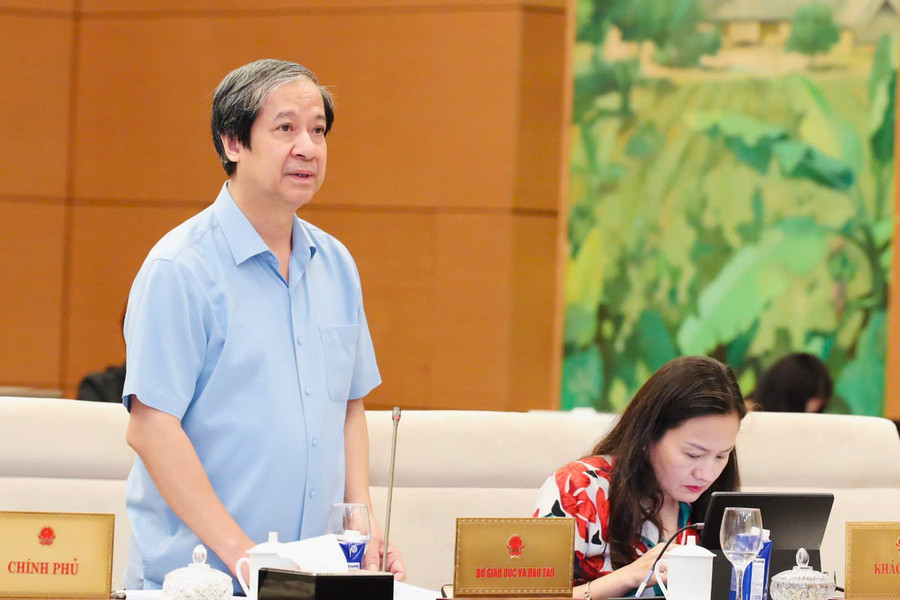
The draft Law amends and supplements 11 new articles, about 20%, including: regulations on registration and withdrawal of training programs according to level and field; expanding academic, research, financial and personnel autonomy; adding authority to appoint principals; increasing the role of Party organizations; issuing basic standards; adding digital university education models, approving/authorizing approval of doctoral training programs;
Regulating the threshold for ensuring input quality and mandatory accreditation for pedagogical, health, and legal training; supplementing internal quality assurance culture; regulating scientific and technological activities, innovation associated with training; not requiring accreditation of all training programs; supplementing specific policies for scientists and talents; recruiting and promoting lecturers; supplementing lifelong learning, training on demand; full scholarships for postgraduate students; tax incentives.
The reason for amending and supplementing the above contents is to update and institutionalize the new policies of the Party, resolutions No. 57, 59, 66, 68 and the Government; unify state management, apply advanced university governance models, suitable to current reality and have a stable plan; remove barriers to university autonomy; overcome the handling mechanism and sanctions related to the relationship between the school council and the board of directors; add new contents applying modern technology; superior priority mechanism for higher education.
In addition, the draft Law abolishes contents that overlap with other laws or are no longer suitable or are under the authority of the Government (stipulated in the Decree).
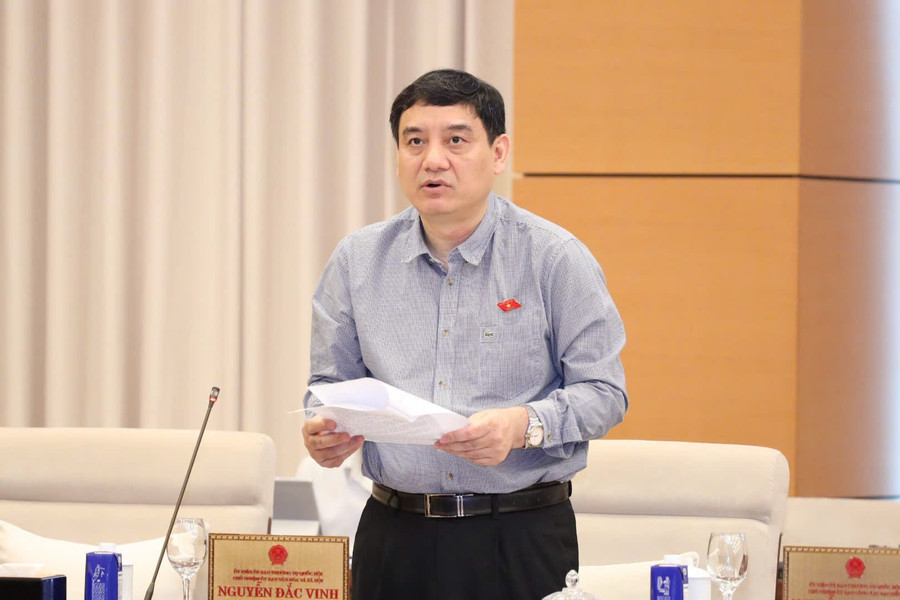
Approval of university autonomy regardless of the level of financial autonomy
In the preliminary review report of the draft Law on Higher Education (amended), Mr. Nguyen Dac Vinh, Chairman of the National Assembly's Committee on Culture and Society, said:
The Standing Committee of the Committee agreed with the necessity of amending the Law stated in the Government's Submission. The draft Law has institutionalized the Party's policies and guidelines, in accordance with the Constitution, basically ensuring unity and consistency in the legal system, and compatibility with relevant international treaties. The draft Law dossier was carefully prepared; the drafting process followed the correct order and procedures; the dossier components were complete as prescribed.
However, the Standing Committee of the Committee requests that the drafting agency pay attention to ensuring consistency between the scope of regulation, subjects of application and the content of the provisions in the draft Law. Continue to review, research and institutionalize new policies on breakthroughs in education and training development; ensure consistency and synchronization in the relevant legal system; especially consistency and synchronization of the 3 draft Laws on education being submitted to the National Assembly for consideration. Continue to review, supplement and complete the content of impact assessment according to the law; supplement documents detailing and guiding the implementation of the Law.
Regarding some major contents of the draft Law, the Standing Committee basically agreed; at the same time, there were some additional opinions related to the scope of regulation, subjects of application; organizational structure and administration of higher education institutions; training activities; finance and assets.
Regarding the organizational structure and governance of higher education institutions, the Standing Committee of the Committee agreed with the regulations on the organizational structure, rights and responsibilities of higher education institutions, especially the regulations on university autonomy regardless of the level of financial autonomy; agreed not to organize a school council in public higher education institutions, and to strengthen the leadership role of the Party organization to institutionalize the new policy of the Party Central Committee.
The Standing Committee proposed to clearly define the relationship between investors, school boards, and boards of directors of private schools to ensure the sustainable development of private higher education institutions.
Regarding training activities, the Standing Committee proposed to consider the regulations on registration of higher education activities stipulated in Article 19 of the draft Law and proposed to replace registration with operating licenses to enhance the effectiveness of state management in ensuring and controlling quality; have a mechanism to partially revoke licenses for training activities in case of violations. To strictly manage the quality of higher education, the Standing Committee agreed that the Ministry of Education and Training should manage the licensing of training programs for the fields of pedagogy, medicine and law.
Regarding the training program for university degrees, it is recommended to clarify the differences between bachelor's training programs, university level training programs, and the differences between bachelor's degrees and university degrees. Research and supplement regulations on specialized training programs in some specific fields that grant equivalent degrees; on the development and implementation of talent training programs.
Regarding doctoral training, the Standing Committee of the Committee highly agreed on the need to tighten the management of training quality for doctoral level. Accordingly, the Standing Committee of the Committee agreed to assign authority to the Minister of Education and Training to approve the implementation of doctoral training programs; at the same time, proposed to have sanctions to strictly handle cases of violations of academic integrity for students, instructors and reviewers in doctoral training.
Regarding finance and assets, the Standing Committee of the Committee proposed clarifying the criteria for determining the highest level of incentives and special incentives; clarifying the mechanism for controlling profits earned from assets used in joint ventures and associations for reinvestment purposes, reducing the financial burden on learners.
Regarding finance and assets of private higher education institutions, it is necessary to inherit the provisions of the current Law, clarify the undivided consolidated assets and the valuation mechanism, control the capital transfer process of higher education institutions, especially related to the undivided consolidated assets...
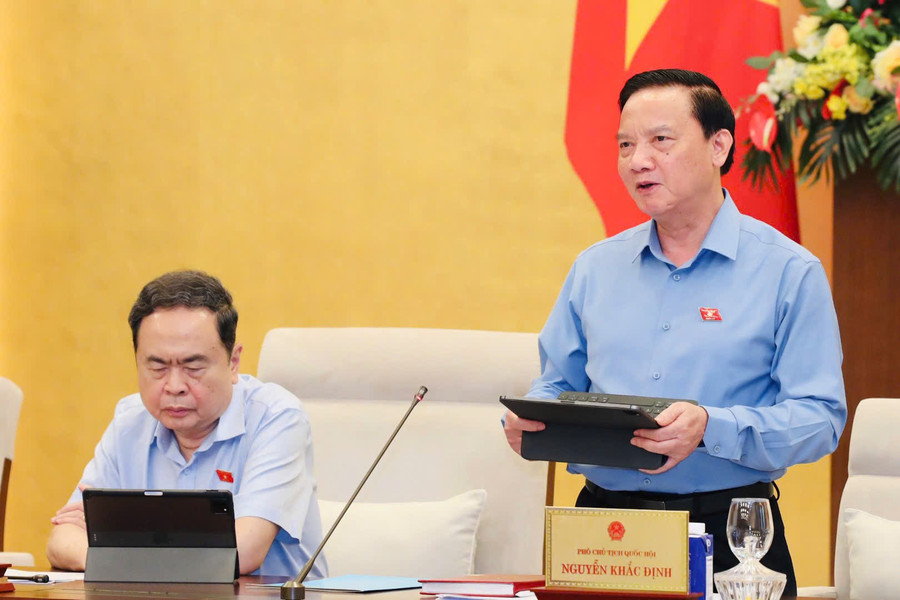
Higher education needs to pioneer in training high-quality human resources.
At the meeting, many opinions highly appreciated the discussion of the Law on Higher Education (amended) with many new and good ideas. The issues discussed and commented on were related to university autonomy; the state needs to pay special attention to the budget for teacher training; educational quality assessment; further emphasizing the role of non-public higher education...
Assessing that this amendment to the law has introduced many new contents, Vice Chairman of the National Assembly Nguyen Khac Dinh also commented that the Draft Law needs to be written more fully to demonstrate the achievements of the current Law on Higher Education, to see the achievements of the education system as well as the achievements of the university training sector in recent years that have contributed to the socio-economic development of the country and international integration.
And this amendment is not because the Law is not of good quality, but because the country is entering a new stage of development, posing many new requirements for improving the quality of university education.
The Vice Chairman of the National Assembly also expressed his agreement with the viewpoint and goal of amending the Law, which is that higher education takes the lead in training high-quality human resources associated with scientific and technological innovation and digital transformation; which is the basis and foundation to contribute to bringing the country into a new era of prosperous development, catching up with advanced and civilized countries.
Regarding the establishment of universities, the Government's Proposal and the Inspection Report of the Committee on Culture and Society both proposed to remove the conditions for establishing universities in the draft Law and the provisions in the Education Law.
Vice Chairman of the National Assembly Nguyen Khac Dinh said that the Law on Education regulates many schools, from preschools, kindergartens to general schools, vocational education to universities. On the other hand, the process to establish a university is about 5-6 years, if regulated in the Law on Education, it is very difficult to detail and specify the order, procedures, and conditions; if the Government is assigned to regulate in detail, it will also be very "heavy" for the Government.
The Vice Chairman of the National Assembly suggested that it is still necessary to stipulate some conditions for establishing universities in the draft Law such as: having sufficient facilities, equipment, teaching aids, laboratories, and other facilities; having a system of permanent teachers and lecturers with at least 50% to teach the school's subjects and majors; having a systematic system of lesson plans, textbooks, and learning materials...
Source: https://giaoducthoidai.vn/sua-luat-giao-duc-dai-hoc-dap-ung-yeu-cau-dat-nuoc-giai-doan-phat-trien-moi-post743941.html



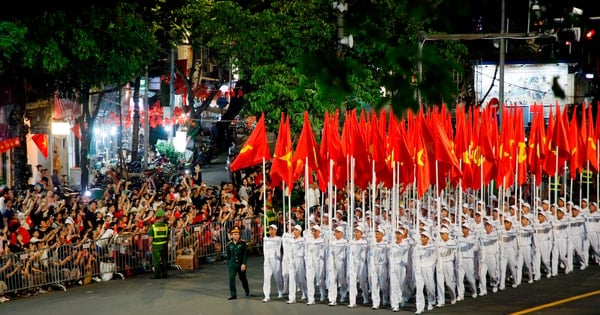

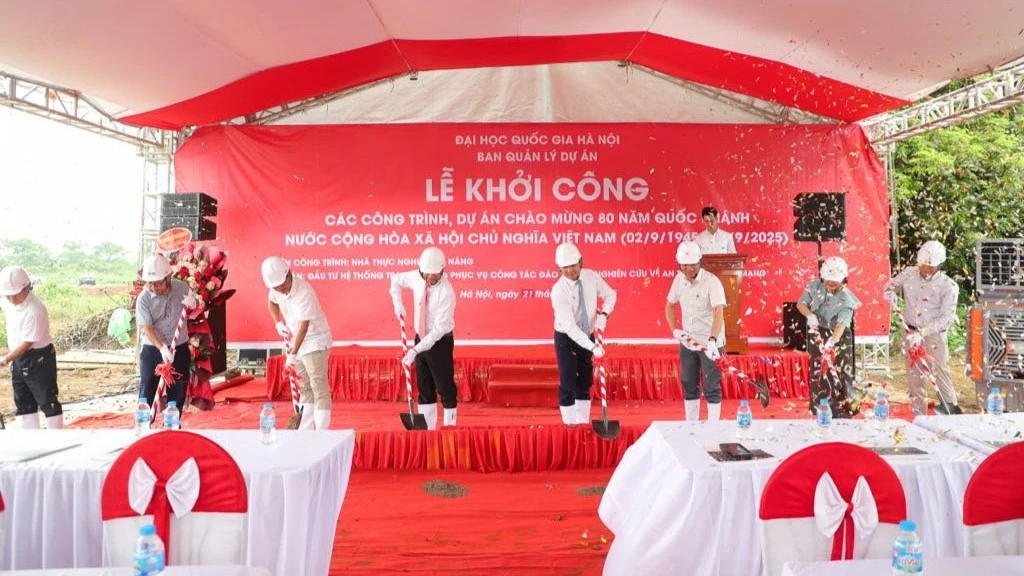
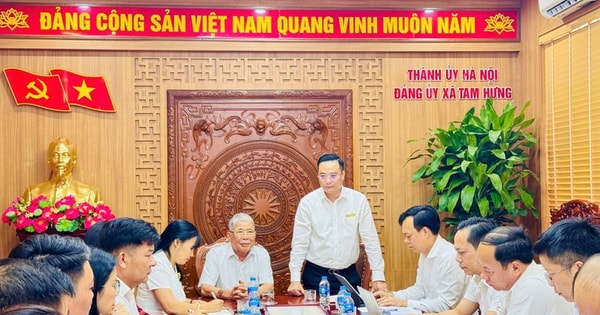

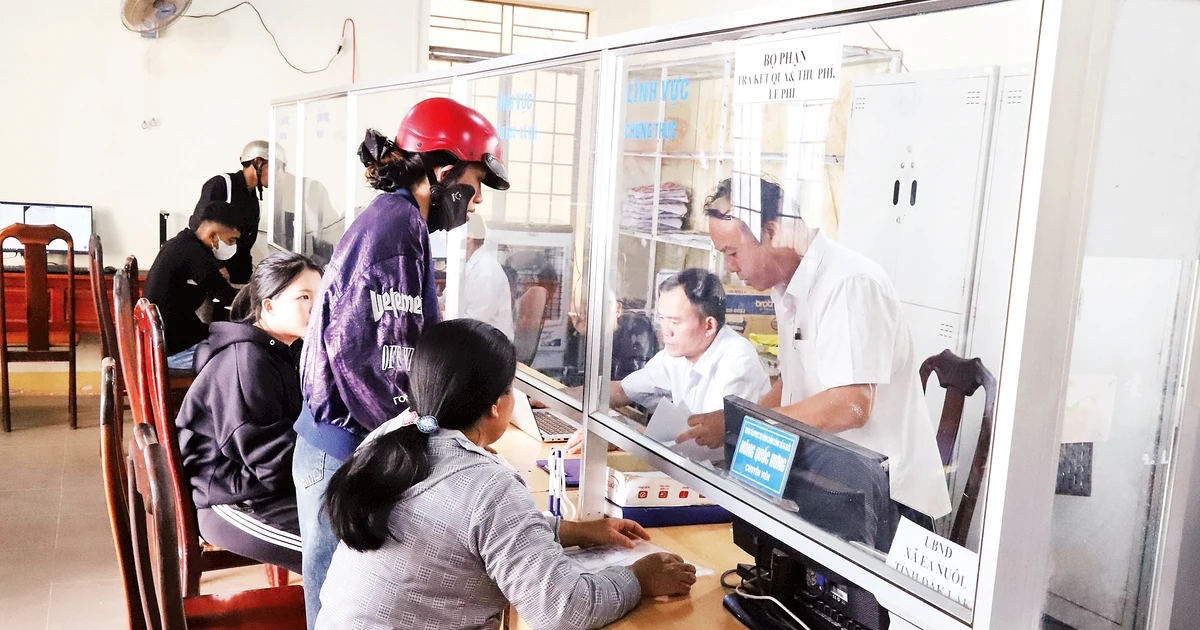

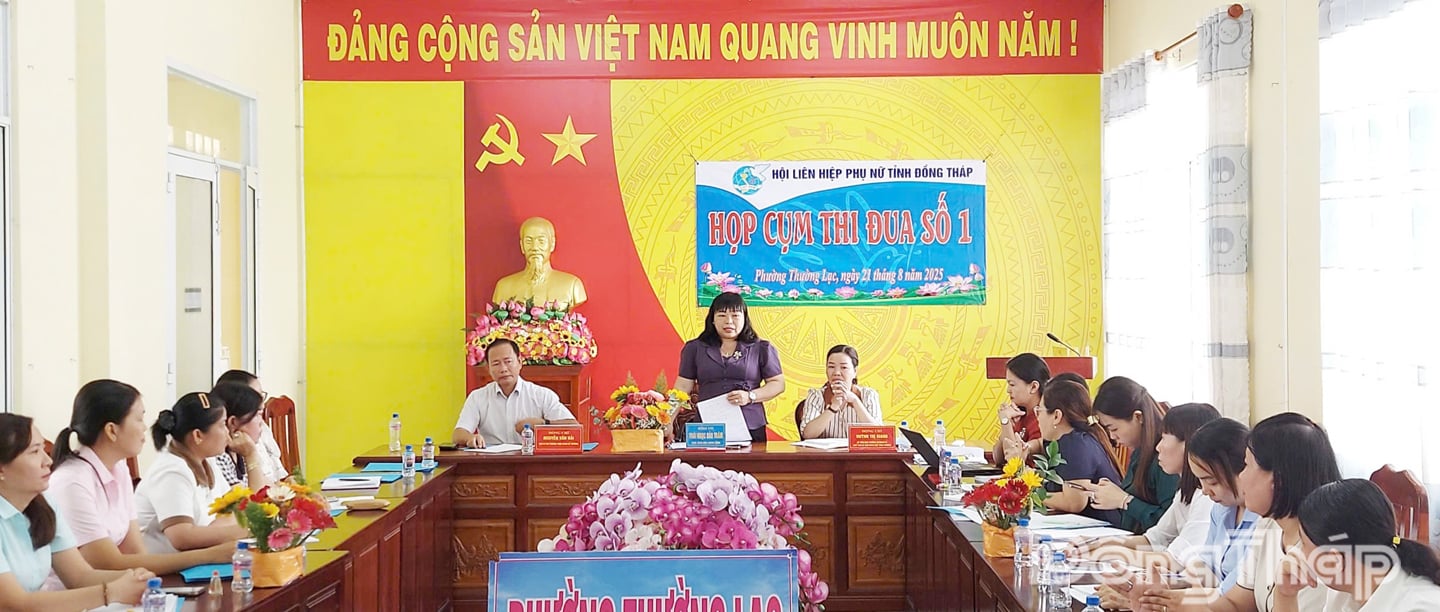
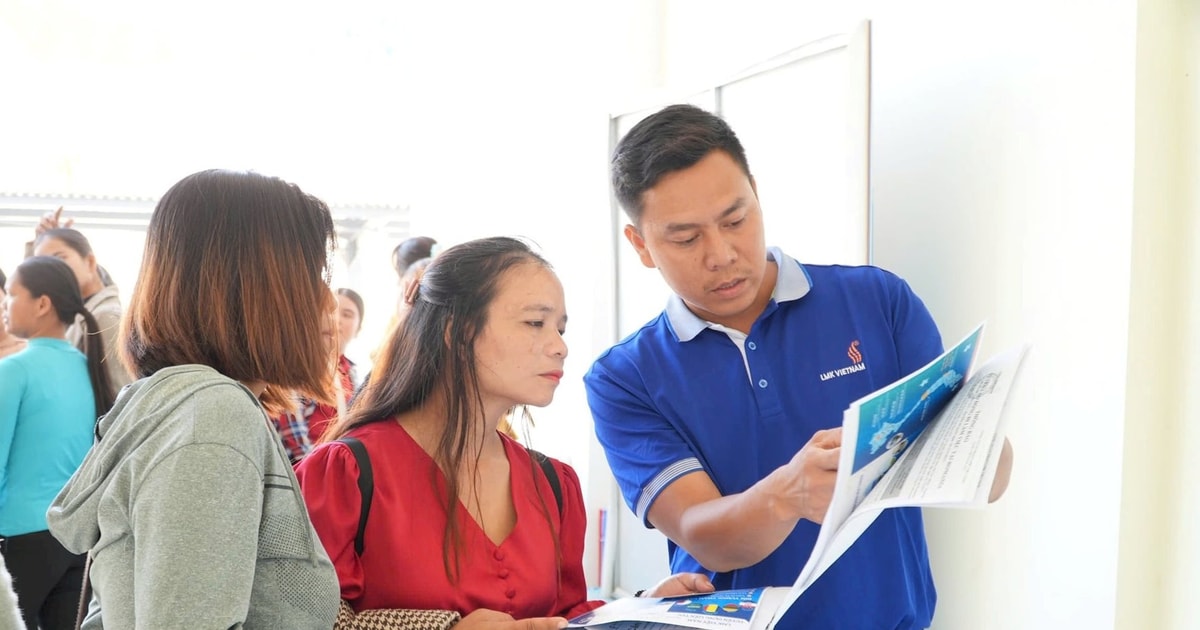
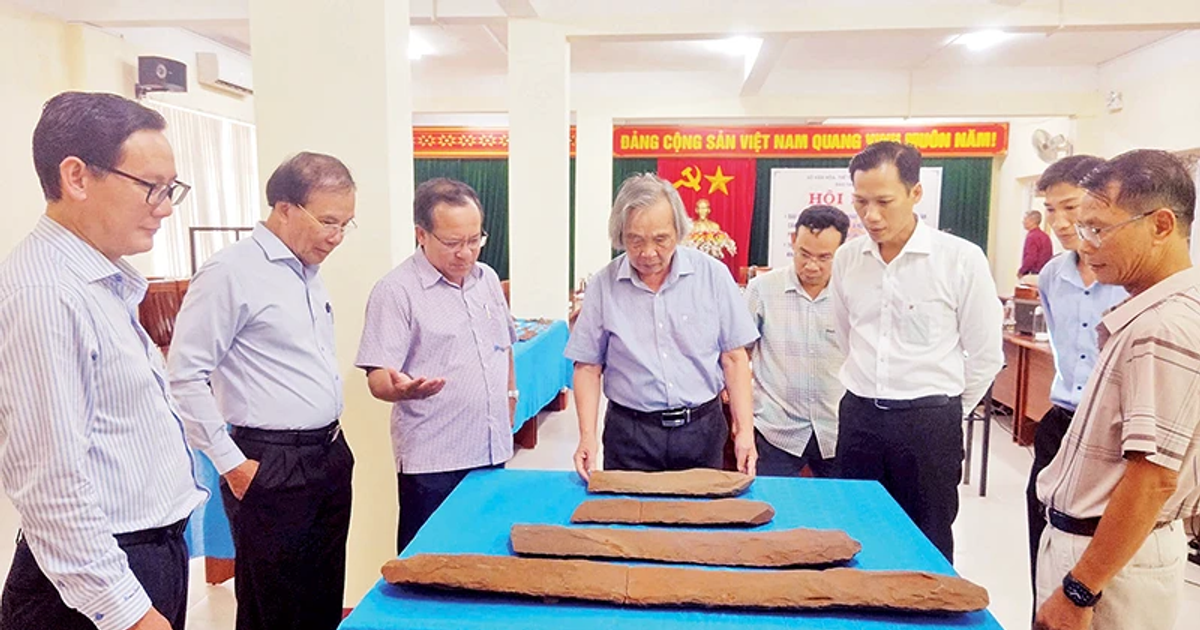


















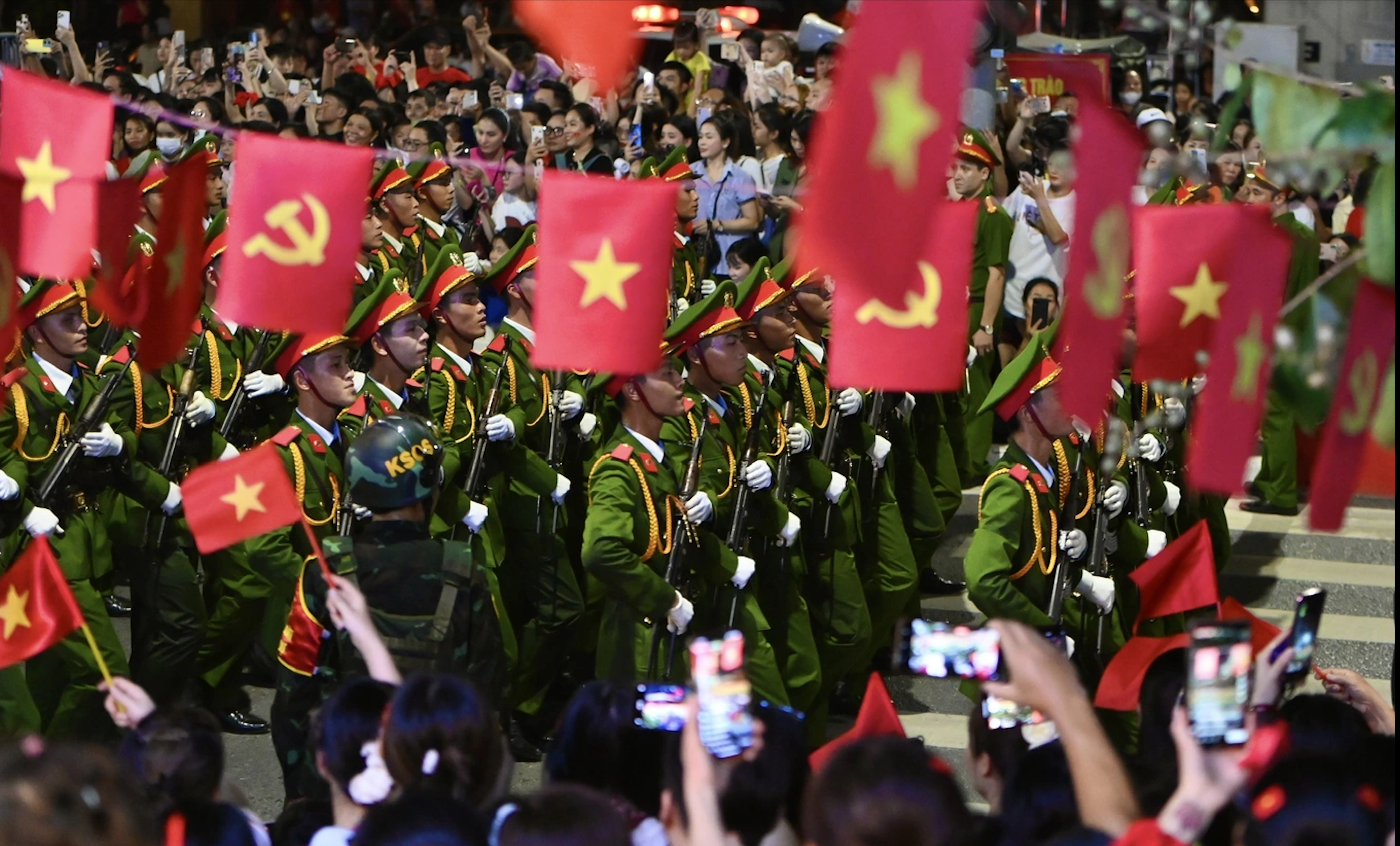
![[Photo] An Phu intersection project connecting Ho Chi Minh City-Long Thanh-Dau Giay expressway behind schedule](https://vstatic.vietnam.vn/vietnam/resource/IMAGE/2025/8/21/1ad80e9dd8944150bb72e6c49ecc7e08)































![[Photo] Politburo works with the Standing Committee of Hanoi Party Committee and Ho Chi Minh City Party Committee](https://vstatic.vietnam.vn/vietnam/resource/IMAGE/2025/8/21/4f3460337a6045e7847d50d38704355d)
































Comment (0)